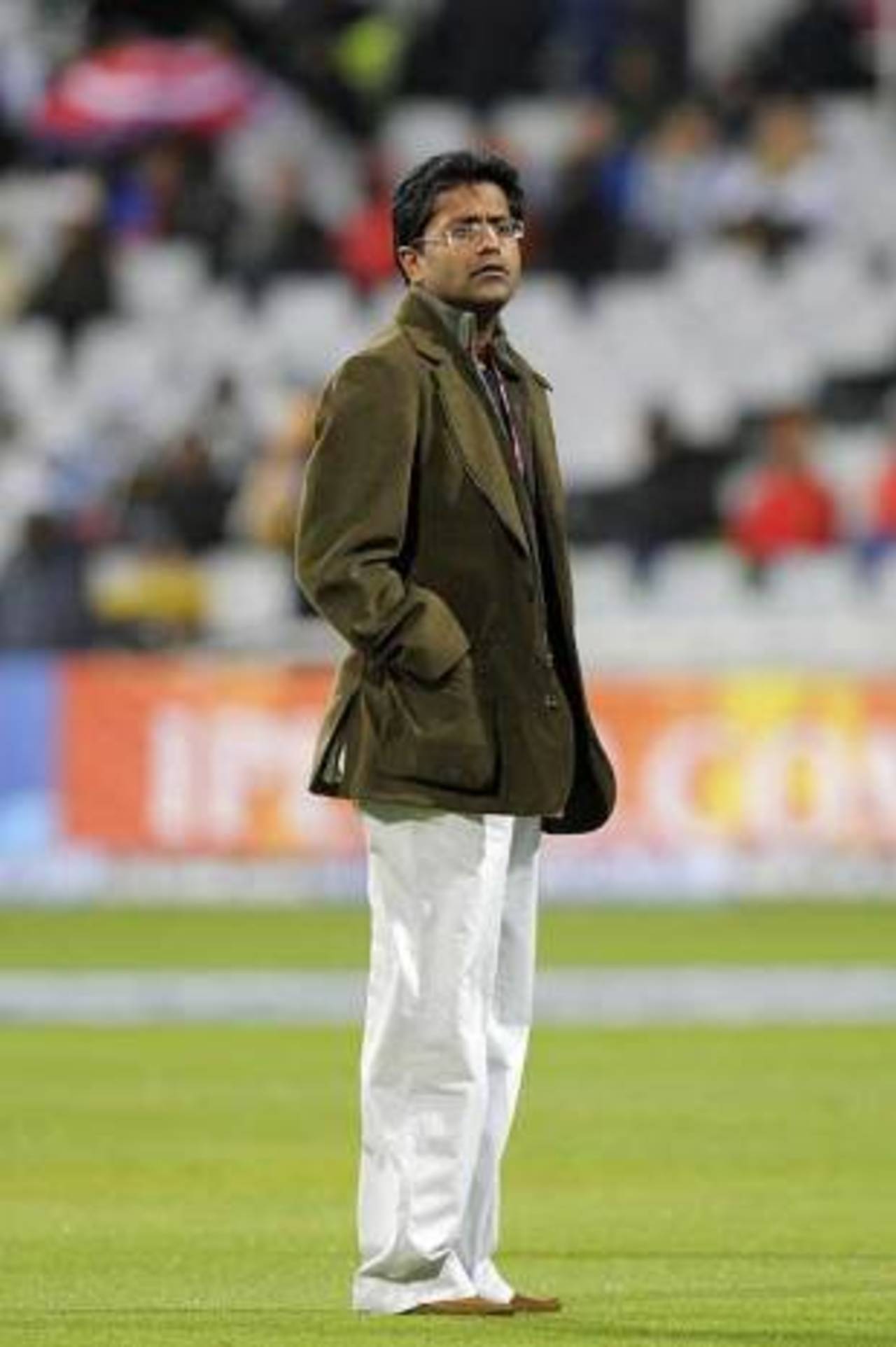Lalit Modi, the former IPL chairman, has in a remarkable outburst on Twitter revealed details of what he claims was the BCCI's sustained and widespread campaign against the privately-owned 'rebel' Indian Cricket League (ICL) that eventually led to its closure. Ironically, by his own earlier admission, Modi played the most high-profile and strident role in crushing the ICL.
The BCCI's opposition to the ICL, owned by Zee Telefilms, has been well-known but Modi's accusations - spread over 25 tweets in a four-hour span - would, if true, confirm the part it played, along with the ICC and cricket boards around the world, to isolate the ICL from international cricket.
Modi claimed that the BCCI had a "mandate to scuttle ICL" and, in order to do so, "arm-twisted every cricket board and the ICC" to change their constitutions. The ICL, he said, was made redundant by being deemed unauthorised.
BCCI president Shashank Manohar would not comment on Modi's allegations, telling ESPNcricinfo, "He sits somewhere and writes something ... it is not of concern to us. The media is fascinated by his comments, not us."
The ICL was born in April 2007 out of the debris of India's disastrous World Cup campaign. However, it seemed to have usurped a plan by the BCCI for a similar league, and that set off a series of events, court cases, failed negotiations and bans on players and officials that led to the ICL's closure; the league's last competitive match was in November 2008.
Modi's comments included an attempt to abdicate his own responsibility in those events but he was one of the most powerful men in Indian cricket, if not the global game, and has admitted (see sidebar) to playing a major role in the campaign. His tweets explained his role in the exercise by saying the anti-ICL drive was not his personal agenda and that his actions were only a reflection of his doing a job. "I have always done what's required by any organization I have worked with. Well, I guess I do my job well. That's why I give results." He admitted, though, that it was "a mistake to have systematically used everything in the BCCI's arsenal to finish the ICL."
Even as the head of the BCCI's marketing committee at the time, Modi said, he had "no personal issues with ICL" and that his "personal opinion that more competition in the game is good for the game and its Players."
Later, speaking to the TV channel
Times Now, Modi said the timing of his relevations was prompted by the BCCI's attitude towards the fledgling Sri Lankan Premier League. The BCCI has barred Indian players from taking part in that tournament on the grounds - flawed, as ESPNcricinfo
has revealed - that it was run by a private organisation and not the national board. "The ICL as an issue was dead and buried but now there is a related case of an authorised league being stopped," Modi said, while clarifying that he had no links with the SLPL.
If Modi's version of the anti-ICL campaign is true, it paints an unflattering picture of how world cricket toed the BCCI's line. His allegations on Twitter: The Indian board "called every member of the ICC to ensure that they all help in changing the ICC constitution to outlaw the ICL"; the ICC formed a three-member committee, including Modi, to draft the new constitution (though it is understood that the ICC's constitution itself has not been changed). There were, in fact, alterations to section 32 of the ICC's Operating Manual with the section on "unofficial cricket events" being replaced by that concerning "disapproved cricket" on June 1, 2009. The changes were made after member boards asked for clarity on the issue.
How did the BCCI exert pressure or "induce" other member boards to outlaw the ICL? By offering them a share of the earnings of the Champions League Twenty20. The ECB, he said, had lost out on "the right to be a shareholder" of the Champions League at the initial stage itself.
At home, the BCCI allegedly "called all and sundry to oppose the ICL." Domestic players were told they would be blacklisted if they played in the ICL, state associations were asked not to make their grounds available for ICL matches or "fear loosing (sic) matches", advertisers "were called and told if you advertise on ICL, then you will be barred from all BCCI cricket". Umpires and commentators were also pressured.
Modi, currently in near-exile in the UK, was suspended by the BCCI over financial irregularities relating to the IPL as well as charged with colluding to set up a rebel league in England. To which Modi said, "To even suggest that I would hold out a plan which seems to destroy the world cricket structure or impinge upon the control of various Governing Bodies in their respective countries is not only farfetched but is clearly false to the knowledge of all concerned."
